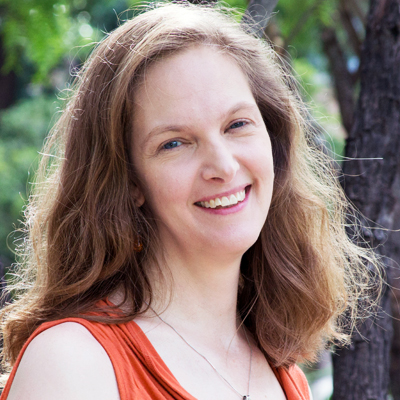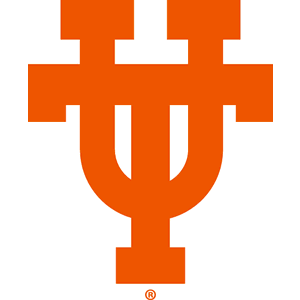Basic research aims to improve school readiness and literacy for our nation's youth
The number of words within a child's vocabulary is strongly associated with their academic achievement later in life. However, problems with achievement begin early and occur at a higher rate for children from socioeconomically disadvantaged homes. Given how many children are living in "at risk" households in the United States the "vocabulary gap" and its long-term consequences for early literacy and academic achievement are of serious societal concern. Dr. Amy Booth, of The University of Texas at Austin, is dedicated to advancing knowledge of how young children think and learn. In particular, her work is aimed at explaining why the development of young children varies so widely across the areas of language, cognition, and motivation. She and her team are particularly interested in applying their basic research to understanding wide disparities among children in their school readiness and early literacy success. Dr. Booth's ultimate goal is to develop new approaches to early education and intervention that will optimize outcomes for all children, thereby helping to close persistent achievement gaps.
Dr. Booth leads the only lab in the nation that is considering differences in preschooler's word-learning skills, as well their interests in how the world works, as potentially foundational to school readiness, as well as subsequent reading success and scientific literacy. Exploring such differences will allow researchers to evaluate the viability of innovative approaches to intervention that have the potential to help children who enter "at risk" preschoolers to enter kindergarten on equal footing with their peers in respect to their readiness to learn. For example, Dr. Booth argues that boosting children's generalizable word-learning skills, rather than simply attempting to teach children more words, might have an unprecedented impact on the vocabulary gap. Similarly, Booth argues that focusing early interventions on children's broad causal reasoning skills, as well as motivational factors, might have a particularly strong impact on socioeconomic disparities in science engagement and achievement.
Current research includes:
-
The Vocabulary Gap: A sizable "vocabulary gap" persistently differentiates socioeconomically disadvantaged children from their peers as they enter school. This disparity unfortunately contributes to many children falling even further behind with respect to their literacy and academic achievement. Dr. Booth hopes that by moving beyond a banking model of vocabulary memorization to instead explore potentially fundamental differences in children's world learning skills, her research will help at risk children succeed in school.
- Origins of Early Scientific Literacy: Dr. Booth is attempting to specify the origins and consequences of variability in children's attunement to causal information. Dr. Booth is particularly interested in how a child's causal stance and causal reasoning skills might contribute to their problem solving capabilities, early scientific literacy and longer-term engagement with science. Again, her hope is that understanding these relationships will help to develop educational interventions that will sufficiently prepare at-risk children for school, and specifically to succeed in science.
- Educating Future Researchers: Dr. Amy Booth's love of research is complemented by her passion for mentoring students. Placing an importance on diversity as well as helping to foster students that may not have the opportunity to do work within a lab otherwise makes her an inspiring educator.
Bio
Amy E. Booth holds a B.A. in Psychology from Brown University, an M.Sc. in Developmental Psychology from the University of Virginia, and a Ph.D. in Developmental Psychology from the University of Pittsburgh. Booth joined the faculty of UT Austin in 2014, after spending 14 years at Northwestern University. Booth's research, conducted in the Little Learners Laboratory, focuses on the mechanisms by which young children acquire and organize new knowledge. In much of her work, she has explored interactions between categorization, conceptual knowledge and word learning in infants and preschoolers. With the support of a grant from the National Science Foundation, she is currently investigating the role of individual differences in children's word-learning skills in explaining disparities in vocabulary and early literacy as children enter school. In another line of work, also supported by a grant from the National Science Foundation, Booth is investigating the origins of children's scientific literacy by examining early interests in, and ability to reason about, causal information. Booth's research enterprise is complemented by her award-winning commitment to teaching at both the graduate and undergraduate level. She currently teaches Research in Communication Sciences and Disorders and Child Development in Psychology.
Dr. Booth was raised in an academic household by two Professors of Sociology and began working in research laboratories at Rutgers University while still in high school. By the time she was a senior at Brown University, Dr. Booth had discovered her own passion for research, particularly as it applied to understanding the early development of language and cognition in children. Although she was initially simply fascinated by the incredible sophistication of infant's learning and representational capabilities, she later realized the importance of these foundations for children's acquisition of language. Having observing incredible individual variability among children in her own lab, and becoming more aware of the potential consequences of this variability for school readiness and longer-term outcomes, Dr. Booth is now striving to better describe and understand its sources. In particular, she is exploring socioeconomically related variability in children's early word learning and causal reasoning capabilities as it relates to vocabulary acquisition and engagement and success in science. The hope is that this work will support the development of new educational curricula and targeted early intervention programs that will facilitate optimal language and scientific literacy outcomes for at-risk children.
In her free time, Dr. Booth enjoys spending time with her husband (also an academic) and three school-aged children. Since their move to Austin from Chicago, she and her family have enjoyed learning more about their new city and exploring all the amazing trails and waterways in the area with their adopted dog, Roux.
Website: http://labs.la.utexas.edu/little-learners-lab/
Publications
Awards
Specifying the Nature of the Vocabulary Gap, 2014-2017
National Science Foundation
Clarence Simon Award for Outstanding Teaching and Mentoring, 2012
School of Communication, Northwestern University
Causal Supports for Early Word Learning, 2009-2013
National Science Foundation
Object Function as Facilitator of Categorization in Infancy, 2005-2009
National Science Foundation
National Research Service Award, 2000-2003
National Institutes of Health


